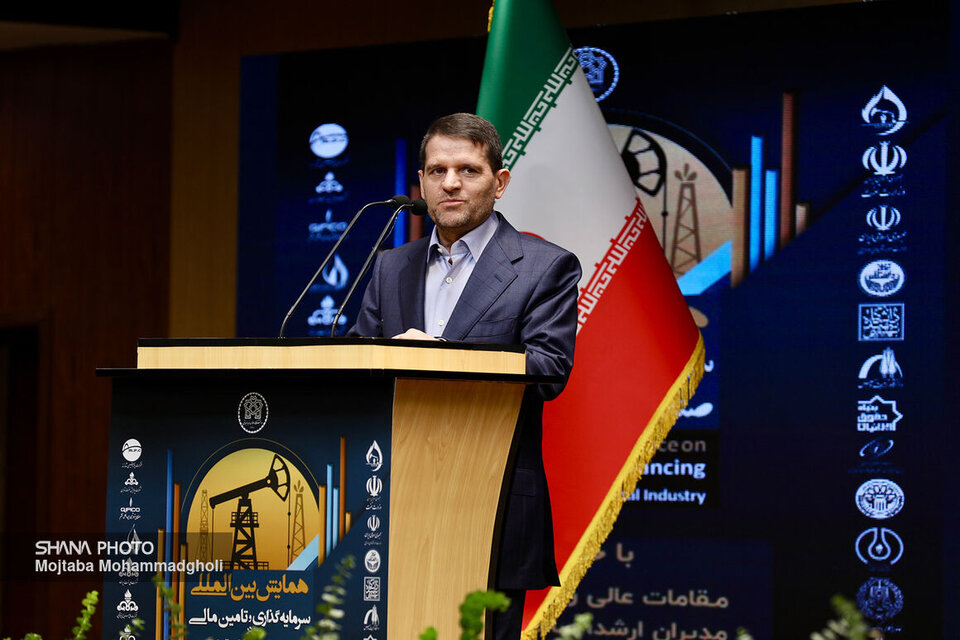Hassan Abbaszadeh made the remarks Monday at the International Conference on Investment and Financing in the Oil, Gas and Petrochemical Industries. He said Iran’s installed petrochemical capacity now stands at roughly 100 million tons, calling the industry a vital link in creating added value for the oil sector.
“To move beyond crude sales, we must prioritize completing the value chain in the petrochemical sector and producing end products in downstream industries,” Abbaszadeh said.
He added that under the Seventh Development Plan, the government and the oil minister have emphasized achieving the program’s full objectives, which call for raising petrochemical capacity to 131 million tons. “The main focus is on completing specific value chains that have been neglected or remain unfinished,” he said.
Preventing $2b in Imports
The deputy oil minister noted that about $2 billion worth of petrochemical products are imported annually, often causing supply issues for downstream industries. “The goal is to produce these products domestically during the Seventh and partly the Eighth Development Plans,” he said.
Of the 66 projects targeted under the current plan, an estimated $26 billion in investment is needed, Abbaszadeh said. “These projects did not start under this plan; on average, they have about 60% physical progress. So far, $13 billion has been invested, and good progress has been made during the first two years.”
He said sustainable feedstock supply, adequate investment, and stable markets are essential for continued development, adding that a stable and predictable business environment is also vital for attracting investors.
46 Projects Ready for Investment
According to Abbaszadeh, 46 new petrochemical projects are ready for investment and are expected to go into operation by 2033 under the Eighth Development Plan. “These projects, requiring $44 billion in total investment, already have environmental permits, land-use approvals, safety plans, and project managers in place,” he said. “Each project has a clear presentation prepared for potential investors.”
He stressed that the industry’s focus is on real private sector investment, noting that of the roughly $90 billion invested so far, only 15% came from genuine private entities. “We aim to increase that share because private companies are more agile, deliver projects faster, and make smarter investment choices,” Abbaszadeh said.
He added that Iran has drifted from genuine privatization in recent years. “A comparison between real private ownership and quasi-state or pension fund holdings shows that while private investment is typically half as large, it results in much lower costs and faster implementation,” he said. “In contrast, quasi-state projects often face delays because returns must go to pension shareholders.”
Retaining 40% of Annual Profits for Development
Abbaszadeh pointed to a provision in the Seventh Development Plan requiring companies to retain 40% of annual profits for reinvestment in development projects. “Proper implementation of this single clause could unlock significant new investment,” he said.
He noted that the petrochemical sector earns about $24 billion annually, but most profits are distributed to pension funds rather than reinvested. “Even in the best years, annual investment has not exceeded $4.5 billion,” he said.
While foreign investment once covered much of the industry’s funding needs, Abbaszadeh said current investment stands at $2.5 to $3 billion annually, mostly from domestic sources. “The domestic capacity for investment is still very strong,” he added.
Attracting Private Capital
Abbaszadeh identified several key factors for boosting private investment in the industry. “First, we must simplify administrative processes and shorten the licensing path. Many private investors are discouraged by lengthy procedures and instead turn to sectors like construction, where returns come faster,” he said.
He also emphasized the need for stable regulations. “Frequent policy changes undermine investor confidence. We must ensure a predictable legal environment so investors know the rules won’t change midstream,” he said, citing the removal of tax exemptions on petrochemical exports and their replacement with export duties as an example of such shifts.
Abbaszadeh added that the industry’s financial instruments need modernization. “We can no longer rely solely on traditional financing methods,” he said. “Conferences and universities can help design new tools such as project-based investment funds and innovative domestic financing mechanisms to attract more capital locally.”


Your Comment